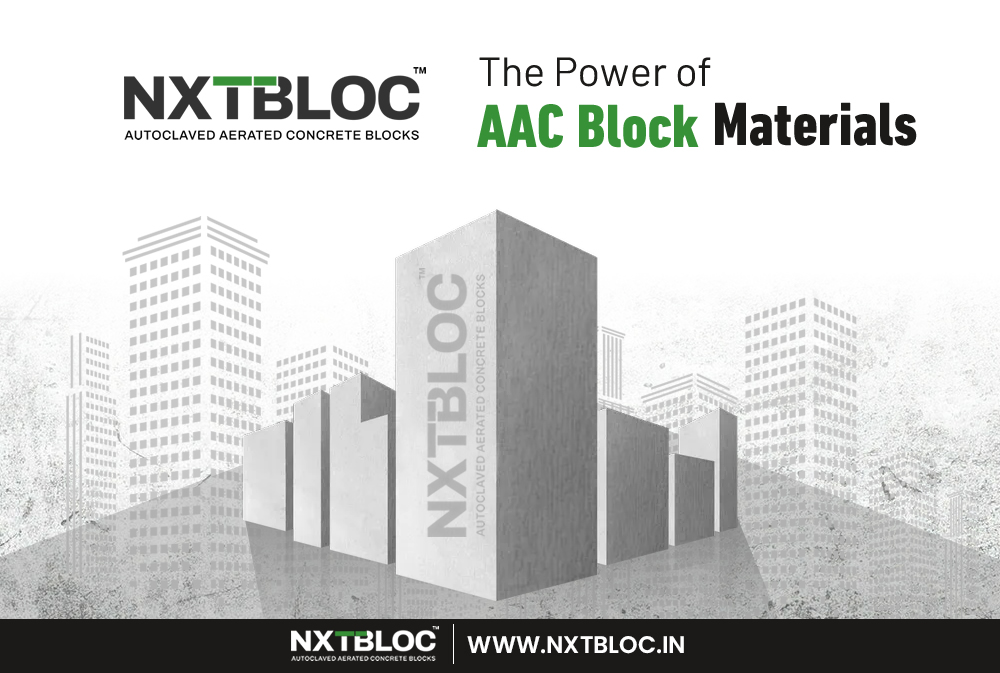Table of Contents
I. Introduction
A. Overview of AAC Block Materials
Explore the marvels of AAC block materials – the key players in modern construction. These lightweight wonders, comprising lime, cement, aluminium powder, and water, are the backbone of eco-friendly and sturdy structures.
B. Importance of Understanding the Materials of AAC Blocks
Before delving into construction, grasp the essence of AAC blocks. This knowledge is akin to unlocking the secrets of a magic potion, ensuring buildings stand tall and resilient.
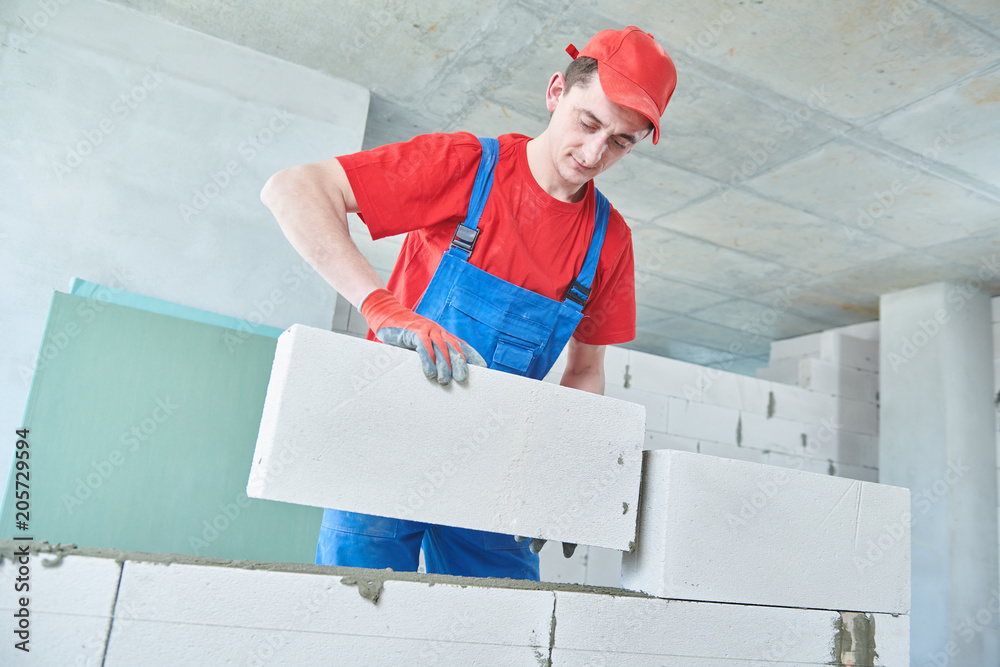
II. AAC Block Basics
A. Definition and Characteristics
AAC blocks, a concoction of lime, cement, aluminium powder, and water, manifest exceptional characteristics. Their lightweight nature and insulating prowess make them a sustainable solution for modern construction challenges.
B. Sustainable Construction Trends
In an era demanding eco-conscious practices, AAC blocks emerge as champions. Their production, requiring minimal energy and resources, aligns seamlessly with global green building trends.
III. Cement: The Solid Foundation of AAC Block Materials
A. Role of Cement in AAC Blocks
Cement, a linchpin in AAC block materials, acts as the binding force. Choosing the right cement is pivotal in fortifying the structural integrity and longevity of constructions.
B. Types of Cement Used in AAC Block
- Portland Cement: The Backbone of AAC Block
This versatile cement plays a pivotal role in ensuring strength and durability.
- Fly Ash-based Cement: Eco-Friendly Companion to AAC Blocks
Embracing sustainability, this cement not only reduces environmental impact but also enhances resilience.
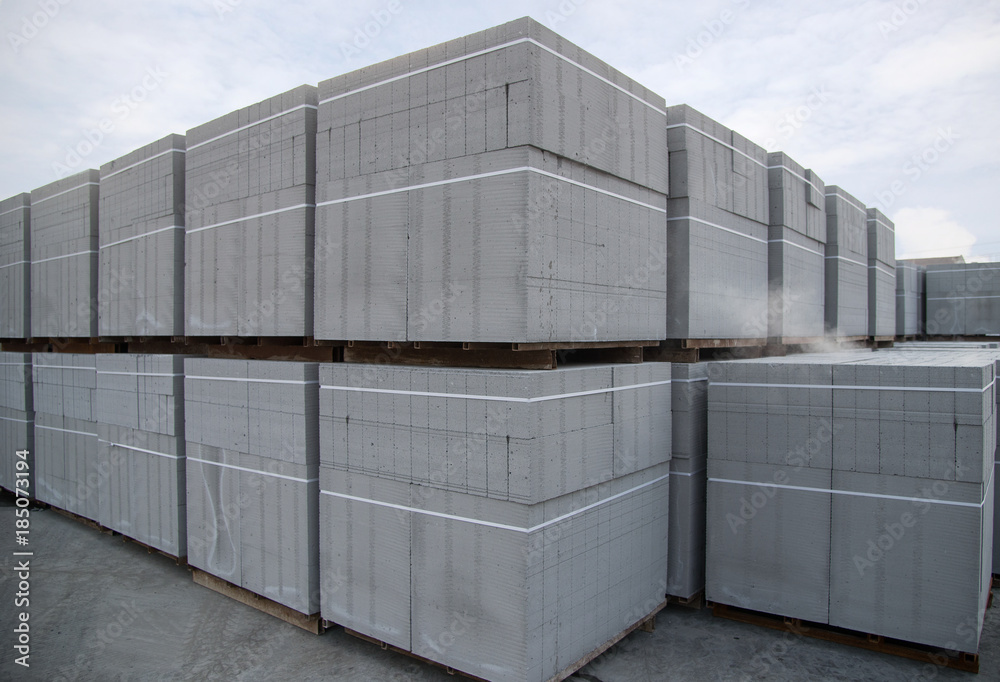
IV. Sand: The Grainy Support in AAC Block Materials
A. Significance of Sand in AAC Blocks
Sand, the unsung hero in AAC block materials, provides cohesion and strength. Adhering to quality standards ensures excellence.
B. Grading and Quality Standards for Sand in AAC Blocks
Following stringent grading and quality standards elevates the overall quality of the AAC blocks, guaranteeing robust and enduring structures.
V. Lime: Enhancing Durability in AAC Block Materials
A. Lime’s Contribution to AAC Blocks
Lime, a vital material in AAC blocks, enhances durability through chemical reactions. It ensures AAC blocks form stable and resilient structures.
B. Different Types of Lime Used in AAC Blocks
- Hydrated Lime: Flexible Element in AAC Blocks
This lime adds flexibility, preventing cracks and ensuring the longevity of AAC block materials.
- Quicklime: Swift Solidification for AAC Blocks
Quicklime expedites the curing process, contributing to the rapid construction of robust AAC blocks.
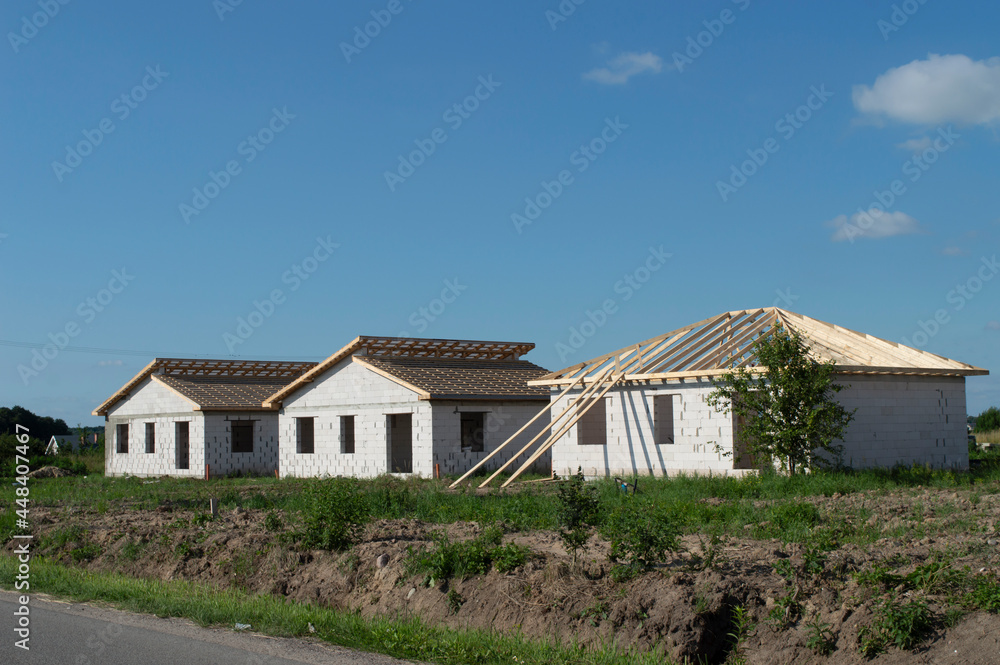
VI. Aluminum Powder: The Aerating Agent in AAC Block Materials
A. Understanding Aluminum’s Function in AAC Blocks
Aluminium powder, the magic touch in AAC blocks, introduces porosity and lightness. It’s the secret behind energy-efficient and lightweight AAC block materials.
B. Impact of Aluminum Powder on AAC Block’s Lightweight Properties
Aluminium powder ensures that the materials remain light yet strong, striking the perfect balance between structural robustness and energy efficiency.
VII. Gypsum: Regulating Setting Time in AAC Blocks
A. Gypsum’s Role in AAC Block Production
Gypsum, the timekeeper in the AAC block, regulates the setting time. It balances strength and setting time for impeccable AAC block materials.
B. Balancing Strength and Setting Time with Gypsum in AAC Block
Strategically using gypsum not only governs setting time but also enhances the strength of the AAC block, laying the foundation for construction marvels.
VIII. Water: The Binding Element in AAC Block
A. Importance of Water in AAC Mix
Water, the binding element in AAC block materials, ensures a cohesive mix. The right water-cement ratio influences the quality and durability of AAC blocks.
B. Water-Cement Ratio Considerations
Maintaining an optimal water-cement ratio is imperative for AAC blocks. It ensures a cohesive mix, contributing to the strength and durability of the final construction.
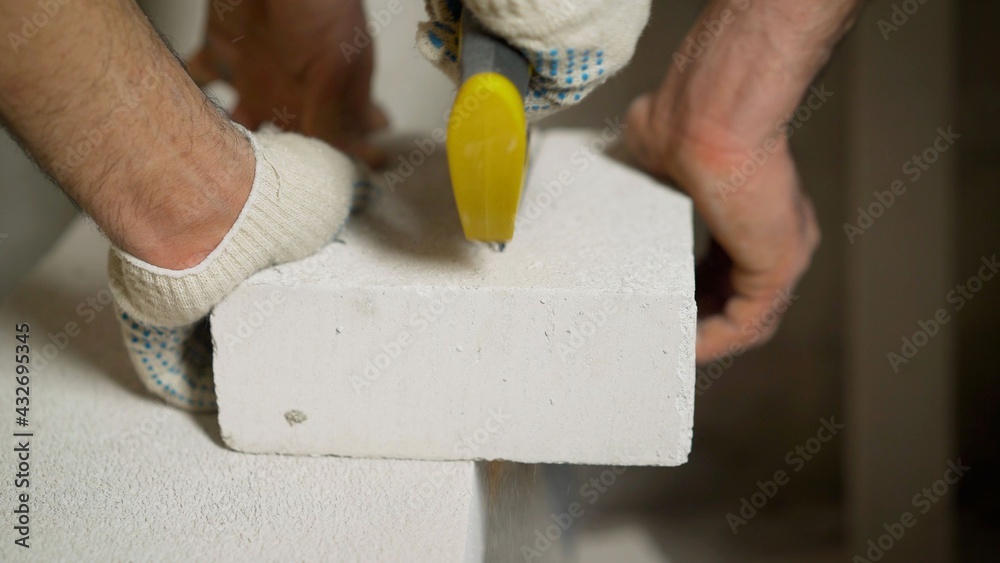
IX. Material Interaction: Creating AAC Magic
A. The Synergy of Cement, Sand, Lime, Aluminum, Gypsum, and Water
The intricate dance of AAC block materials’ components creates magic. Cement, sand, lime, aluminium, gypsum, and water synergize to produce AAC block materials with strength, durability, and sustainability.
B. Achieving the Ideal Mix Proportions
Precision in mixing proportions is the alchemy behind AAC block materials. Balancing each element ensures that the final product embodies strength, durability, and sustainability.
X. Future Innovations in AAC Block Materials
A. Emerging Trends in AAC Block Composition Materials
As construction evolves, so do the materials in AAC blocks. Innovations such as incorporating recycled materials, nanotechnology, and advanced curing techniques herald a future where AAC block materials continue to lead in sustainable construction.
B. Sustainable Material Practices for the Future
The future of construction hinges on sustainability. AAC block materials, with their eco-friendly attributes, are at the forefront of this movement. Embracing sustainable material practices ensures that the construction industry not only meets the demands of the present but paves the way for a greener and more resilient future.
Conclusion
In the realm of construction, NXTBLOC stands out as a leading manufacturer of AAC block materials in India. These lightweight wonders, comprising lime, cement, aluminium powder, and water, are not just materials but the key to building a sustainable and resilient tomorrow. Understanding the intricacies of each AAC block material is like holding the blueprint for constructing eco-friendly and sturdy structures. As we look ahead, anticipate AAC block materials to continuously evolve, setting the stage for sustainable and innovative construction practices. Here’s to a future built on the foundation of AAC block materials – strong, green, and enduring!
